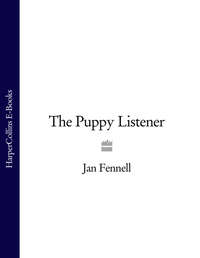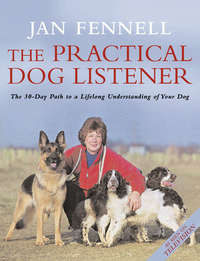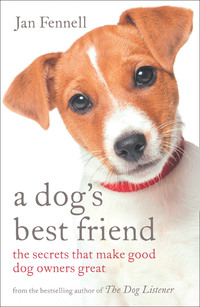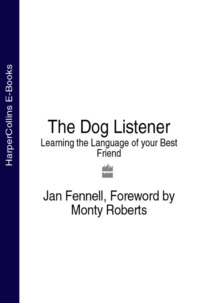
Полная версия
Friends for Life
This, apparently, was soon after I was born. But I knew nothing of it. Even then, sadly, Ron fought against it. His grandmother was still bitter and made sure he thought the worst of my mother. But, as so often happens, when he was about to become a parent himself for the first time he finally came back. That strange, bewildering night in November 1958 was their reconciliation.
Again, with the benefit of hindsight I can see that it would have been a hugely significant night in my mother’s life. I can only guess at some of the emotions she must have been feeling. But I can see how it must have affected her relationship with me. Her coldness, her distance from me, was perhaps her way of insulating herself from the pain of suffering a loss again. Maybe she daren’t form too close a bond with me for fear of losing me too. It would also explain her possessiveness and over-controlling nature. She didn’t want me to run away. And I can see now why she was so determined to dress me well and keep me immaculate at all times. She was not going to have me walking around the way her son had done. Part of me wonders, too, whether she felt angry still and took some of that out on me. Who knows?
Time has allowed me to realize why she reacted to Ron’s reappearance in her life the way she did. In the immediate aftermath of that night, I watched her unleash all her money and affection on Ron, Anne and the new baby, David. Almost the next day she went out and bought Anne a lovely expensive necklace. When the baby arrived, they moved in near us. I was besotted with the baby too. It was the closest I had come to having a real brother myself and I spent every spare moment I could with David. Mum was around there all the time, however. It transformed her beyond all recognition into a loving, warm-hearted mother.
Now I understand she saw this as her second chance, a God-given opportunity to put things right between her and her son. As a ten-year-old, however, I perceived none of these things. I remember lying in bed that night thinking to myself: ‘There isn’t much love here for me as it is, am I going to have to share that now?’
Chapter 5
Love Me, Love My Dog
One bright summer’s day when I was fourteen, I was driving through the suburbs of west London in the cab of my father’s lorry. This was something I often did during the school holidays. I enjoyed being out and about with him, getting to see different parts of London and the surrounding countryside. At that time he was working on the new runway at Heathrow Airport, so there was an extra excitement to the trips we made. We were driving through the town of West Drayton in Middlesex when, without any warning, he suddenly pulled off the road and into the drive of a house. There was a small sign hanging from the porch. It read: ‘Mrs Stephens’ Boarding Kennels’.
At first I just sat there, unsure what was going on.
‘Come on, are you getting out or not?’ my father said, swinging open the driver’s door.
‘Why?’
‘You wanted a dog, didn’t you?’
I thought my heart was going to jump out of my mouth.
As I’d entered my teens, I had increasingly found the affection I needed in dogs and the pets we had at home – even if they brought as much heartache as comfort at times.
By now we had moved out of the Clyde Flats on Rylston Road into an upstairs flat in a property on Rowallan Road. It was bigger than the old place, but still cramped. There was only one bedroom; the front room doubled up as a bedsit for me. We had a sitting room and a scullery.
Bluey came with us but soon after we moved he became ill. The talkative charmer of the past disappeared and he became a quieter, sadder creature. He developed the habit of picking at his coat, which left him looking in a terrible state. It was soon clear that his days were numbered, but the end – when it came – was still poignant.
Bluey had been sitting on the bottom of his cage for three days, becoming quieter and quieter. Then one day he got up and seemed chirpier. We let him out of the cage and he was his old affectionate self. He climbed up my dad’s arm and sort of nibbled at it as if he was kissing him. Then he hopped around, performing the same routine with each of us. Thinking he was better, we put him back in his cage. He died that night. He had obviously wanted to say goodbye. I was mortified.
By then my father in particular had realized I wouldn’t be settled without a pet of some kind. I really did love the companionship. That same week he suddenly appeared with a black and white old English rabbit I called Domino.
But my run of bad luck hadn’t ended. Domino soon became sick. One day I was carrying him to the vet, covered in a blue blanket. I can still remember the blanket, it had white swallows on it. Suddenly he screamed. I had never heard a rabbit scream before and before I knew it he had died in my arms. It broke my heart. I was nowhere near the surgery and was just as far away from home so I ended up running to the nearest house I knew, that of my mother’s in-laws the Cowpers. Nora Cowper was related through marriage to my mother’s brother Sonny and lived off Lillie Road with her three daughters, Jacquie, Geraldine and Debbie. They were a lovely family who meant a lot to me. The moment Nora opened the door I burst into tears. She took me under her wing and dealt with poor Domino. ‘Give her to me Janice, I’ll lay her to rest here,’ she said. With the girls we went to the garden where we conducted a little burial service before placing her in a box in a hole in the corner.
We never found out what had killed Domino so suddenly. The poor thing may have caught an infection, but we simply didn’t know.
For a time, I can remember feeling I was a curse to these animals. As I scampered after my father towards the doors of Mrs Stephens’ Boarding Kennels, however, all that was forgotten.
We rang the bell and a woman appeared. It was clearly the owner, Mrs Stephens.
She was expecting us. ‘Mr Fennell, hello. Would you like to come with me and I’ll show you the puppies,’ she smiled.
There were all manner of dogs in the kennels at the rear of the house. But Mrs Stephens made a beeline for a pen where I saw three black and white Border collie puppies leaping around in a cage.
I’d fantasized about having my own dog for years, of course. Usually I imagined myself having a Lassie dog, a collie. Now all I wanted was a Border collie – one of these Border collies.
‘Two of them are four guineas, one of them is five,’ Mrs Stephens said, brisk and businesslike.
My dad asked me to choose. I knew already which one I wanted. One of the trio had a lovely tricoloured little face – black with white and little bits of tan. From the moment I’d walked up to the kennel he hadn’t stopped staring at me.
‘That one please, Dad,’ I said.
‘That’s the five-guinea one,’ Mrs Stephens replied.
‘Oooh, she’s got expensive tastes like her mother,’ he smiled.
He was a beautiful dog. Mrs Stephens picked him up and offered him to my father.
‘It’s Janice’s,’ he said gently, counting out the money. ‘Give it to her.’
He was about eight or nine weeks old. Mrs Stephens told me to put him on the floor to see how he moved; his little legs wobbled and his tail was wagging. I wanted to pick him up and love him. I couldn’t believe he was mine.
We got back into the lorry and drove home. I was nervous as well as excited. The poor little puppy was traumatized at having been separated from his litter. No matter how much I cuddled him he cried all the way home. Dad understood this better than I did. ‘He’s frightened. He’s got to learn to trust us,’ he said.
When we got him home he ran around the flat like a dervish then peed on the floor. My dad and I looked at each other with horror. We were both thinking the same thing. Mum.
‘Perhaps we should have put him out in the garden,’ I said as I went to get the cleaning materials.
For once, however, Mum confounded us.
When she came home from work that evening she didn’t worry about the fading patch of damp on the carpet. Instead she seemed genuinely interested in the new arrival. ‘Hello, you’re nice,’ she said to the puppy.
Her interest didn’t extend to being affectionate to the dog, however. He started climbing up and she stepped back. ‘Don’t jump up at me, dear,’ she told him firmly. She then ignored him for the rest of the evening.
Shane, as I had soon christened him, brought me and my father closer than we’d been for a long time. Dad loved him too and training him became our joint project.
Dad sorted out his vaccinations. Then we did obedience training in the traditional way. He was very concerned that we should be responsible about it all. ‘We want him to be a well-trained dog, a happy dog,’ he would say to me. And in that respect, we succeeded brilliantly.
Soon we had taught him to walk to heel and to come. And soon both Dad and I were taking him out for walks around the neighbourhood. Dad also used to take him out in the lorry during the daytime. He became a member of the family in a way no other pet had, apart from Bluey.
Mum treated him like another child. She wasn’t nasty to him; she thought he was cute, although she never warmed to him. She fed him and let him out into the back garden. But her main concern was that he always wiped his feet and didn’t get things dirty and kept the house clean. We had to groom him too so that there were no hairs anywhere.
In effect she behaved towards Shane as she had towards me – to such an extent that she wouldn’t let him go out on the street with the other dogs from the neighbourhood.
Mum disapproved of me mixing with the rest of the kids from the street. If I was sitting out on the coping she would appear at the top of the stairs: ‘Janice, come in here, don’t do that, that’s what common people do.’ She was a snob. She couldn’t see that we were ‘common’ too.
Shane was soon being treated the same way. She said once she didn’t want him being a street urchin. She didn’t want him mixing with a lower class of dog!
Mum was too wrapped up in her own life to keep a constant eye on us, however. And soon Shane was very much integrated with the other dogs on the street.
The leader of the local ‘pack’ was Bobby, an old mongrel, a foxy type of dog with pointed ears. Bobby was the street’s guard dog. When Shane first arrived as a puppy, Bobby was very protective of him whenever I took him out. We used to giggle because if any other dogs came near Bobby would adopt a stance, growling and staring aggressively. He was fourteen years old, slow and frail looking. But it was a convincing act nevertheless.
As Shane grew, however, old Bobby was relieved of the duty. The passing of the torch came one day when Shane was about nine months old and a big black dog appeared around the corner. Bobby growled at him as usual but it had no effect. For a moment it looked as if there was going to be trouble, but it was Shane who drove him away. Afterwards Bobby licked Shane’s face, as if thanking him for what he’d done. From then on Bobby and Shane became a duo.
Like Digger, Shane opened doors for me. In many ways he allowed me to become a part of the community for the first time. I became friendly with the children who owned Bobby and another dog, Lucky. We’d all jump on a bus up to Putney Heath together where we’d let the dogs run free at the weekends.
My mother disapproved of this, of course, but less because of the friends I was making than because of the mess Shane used to come back in. I recall one Sunday lunchtime when we went to Putney Heath but got caught out by a wet mist that came down. The ground became very heavy and the dogs got clatted up. We were lucky to be allowed back on the bus to Fulham.
The dogs were sweating heavily, too, and the smell they gave off was terrible. We went upstairs, giggling whenever a passenger clambered up the steps only to return to the lower deck when they were hit by the stench.
As we drew closer to home, however, the laughter faded. My mother was having friends around for tea. I thought to myself: ‘She’s going to kill me.’
I tried to sneak Shane in so that I could give him a bath straight away. My mother wasn’t there but my father was. He loved Shane and helped me get him in the bath. We were having great fun and games cleaning him when my mother reappeared.
I remember she turned absolutely white with rage. The fact that Dad was laughing only made things worse.
The respect for animals I had inherited from my grandmother and Great-Uncle Jim deepened as I grew older. But it also brought me into conflict with other members of the family who had a different outlook.
At first my sensitivity to the feelings of other living creatures showed itself in small ways. My dad liked cowboys and he used to take me to see westerns. I would get upset when the horses were brought down. I didn’t know it at the time, but they were using potholes or tripwires. To me there was nothing clever about killing animals. My nan and my Great-Uncle Jim had taught me to respect and care for horses and such activities went against this principle.
And by an early age I had begun to rebel against the idea of eating animals. I can vividly remember that when my mother used to take me to Manzi’s eel and pie shop, I would watch the wriggling eels and think, ‘There is no way on earth I am going to eat them.’ But when I voiced my feelings she didn’t like it.
On one occasion at the butcher’s my mother asked for veal. I asked what it was and was so horrified when they explained how it was produced that I blurted out the words, ‘I’m not eating that.’
‘You’ll eat it and like it, my girl,’ my mother snapped.
‘Sounds like you’ve got a revolution on your hands,’ the butcher smiled as she dragged me out of the shop.
That night at home I sat at the table, the veal on my plate in front of me, locked in a war of wills with my parents. I knew if I put it into my mouth I would be sick. I was eleven. It seemed so cruel.
I paid the price for that one. My father didn’t stop chastising me for days afterwards for having upset my mother. It was a small victory, however. Elsewhere I was powerless to impose my feelings about animal cruelty – especially when it came to dogs.
The way some members of the family treated their dogs appalled me. My mother’s brother Uncle George had a dog called Bruce, a white German shepherd they had got from Battersea Dogs’ Home. I remember George used to lay out small penny bars of chocolate on the kitchen table in their wrapping and tell Bruce not to touch them. He used to think it was marvellous that he could come back half an hour later and find the chocolate still intact. Bruce would sit there looking at the chocolate and drooling, with the saliva dripping down his mouth. I thought this was wicked, it was torment. I used to cry when they put the chocolate on the table.
All the family used to say, ‘Oh don’t be so stupid, the dog’s got to know what’s what.’ They would have a go at me for feeling like this. But my stomach hurt. I would sit in the chair and curl up and say nothing. I felt like running away, but I also felt I couldn’t leave the dog because I would be abandoning him. I knew what it was like to be left alone with pain, to suffer on your own.
The more I learned about dogs, the more convinced I became of their intelligence and sensitivity. And the more determined I became to spare them such treatment.
No dog did more to convince me of its smartness than Shane. That dog was so clever he could tell the difference between the noise my father’s lorry made when it was full and when it was empty. Dad often used to take Shane out in his cab if he had a full load and a delivery to make. If Shane detected an empty lorry he would lie quietly. If he sensed there was a day out in it for him, he would get very excited.
He also had an amazing sense of direction. One night he went missing. My father had said that he was going to take him for a walk but had been distracted. Suddenly we realized Shane wasn’t there. We panicked. Then Dad said: ‘Hold on a minute.’ He went out, following their regular walk to the local Labour Exchange. There lay Shane. A woman came out and said he’d been lying there for an hour. That was his walk. He was so well trained we never bothered putting him on a lead, so he had gone there and waited.
For the next few years, Shane and I became utterly inseparable. It was literally a case of love me, love my dog. I went absolutely everywhere with him. Everyone knew that if they invited me to a party then Shane would come with me. I used to go to a youth club and I would take him there with me. I was the only one who did this, yet the amazing thing was that nobody ever questioned it. All the teenagers loved him and he loved all the attention. We were a couple, he was my best mate. If people thought it was odd, I didn’t care. Shane had shown more loyalty and affection to me than any other creature I’d come across. And by now he’d proven that he would defend me to the death if necessary.
The first time I saw Shane in full flight was one Saturday afternoon.
We lived within a short walk of Craven Cottage, home to the then mighty Fulham Football Club. Every fortnight Fulham would be playing at home and all the roads around the ground would become crowded with traffic. Visiting fans used to park down our street, so if my dad was away, it was me and my mum’s job to protect the parking space outside our house.
It wasn’t a particularly scientific process. We’d just set two chairs down and then put brooms across them. On this particular day, sometime during the early 1960s, my mother was putting the chairs out. I was upstairs playing The Beatles. I had a little grey portable record player. One of my uncles worked at EMI so I used to get records early. Suddenly I was aware that Shane was going ballistic through the window next to me. When I leaned out I soon saw why.
Some men had pulled up in a car and one was trying to remove the chairs. My mum was hanging on to them and one guy was trying to separate her from them. There was a real commotion. The men were using unpleasant language and my mother was shouting for help so I ran downstairs. As I went through the door, I sensed that Shane would be behind me and that I should keep him in the house. So I shut both the front door and the gate behind me. But I had underestimated him.
Suddenly Shane appeared out of nowhere. He cleared the gate in one bound, launching himself from the step. Somehow I grabbed him, put my arms around his chest and held on to him for dear life. He was fit to kill. But I sensed these guys weren’t nice people and might hurt him badly.
Shane’s arrival had the desired effect, however. They jumped into the car and drove off in a hurry. The wheels were spinning, leaving tyre tracks. As the car disappeared down the road, neighbours came running out. Mum was in a state, Shane was panting like crazy in my arms. Everyone was full of praise for Shane. What a great dog he was, and how loyal. ‘No one’s going to hurt you or your mum while he’s around,’ they said.
I was on my own with Shane when he underlined how true that was.
Ron and the family had moved near Olympia and I had popped over to see them one Saturday afternoon. Shane and I stayed there until early evening and set off home at about 7 p.m. It was a measure of how safe the streets of London were in those days that there was nothing unusual in this. I thought nothing of walking three miles across a busy part of the city unattended. No one would allow a young girl to do that now. We were walking down a short cut off the North End Road when we passed two lads sitting on a wall. They started whistling at me as lads do. ‘All right, darling.’
As usual Shane was quite a way ahead of me. That was the way it was. He knew the way home. I did what I knew I should do, which was ignore them, keep my head down and just keep going.
Unfortunately these two weren’t so easily shaken off and they started following me.
‘What’s a matter with you then, sweetheart?’ said one.
‘Don’t run away, darling,’ the other shouted when I started to walk faster.
I was just beginning to panic, sure that something unpleasant was going to happen, when Shane appeared from nowhere, snarling. He went straight at the two lads, who just turned and fled the other way, one of them with Shane hanging on to his bottom. I called him back and we ran all the way home.
Later on that weekend, funnily enough, I went to see my nephew in Fulham again. I looked down at Shane playing with the kids, the boys dive-bombing at him. He was rolling around on the floor letting them do whatever they wanted.
This was the wonderful, kind, dopey dog that would let children do anything, that would play with squirrels. But in a moment he could be transformed. To us and the family he was the perfect dog. He was obedient, he was full of playfulness. Yet he would have protected us to the death.
Like most people I thought a dog was part of the family and therefore under the family’s protection. It would be many years before I realized how misconceived an idea that was.
Chapter 6
Departures
By the time I was in my mid-teens other members of the family had sensed the problems that existed between me and my parents.
The loneliness I felt at home was hard to bear at times. Sometimes I would feel physically sick. I regularly cried myself to sleep. I felt a sense of abandonment. Often I felt there was no hope. My unhappiness was all too obvious when we visited relatives. I did my best to appear the dutiful, polite and pleasant young woman, but it didn’t convince many people.
Things came to a head one Christmas with my cousin Doreen. We had begun spending Christmases with her and her husband Reg at their home in Welwyn Garden City. Doreen had always been the kindest of all my relatives. She’d seen the way my mother treated me and had decided it was time to raise the subject of adopting me. But it was only years later that I heard the story of what happened that day.
The air must have been bristling with electricity. ‘You obviously don’t love her,’ Doreen had said to my mother when the two of them were alone, clearing up after the Christmas turkey. ‘You don’t know what I feel for her,’ my mother had apparently snapped back. ‘Besides, you’ve got a daughter of your own to look after you.’
If anything explained the complex way in which my mother regarded me, that exchange did. Her feelings for me were strong, of that I have no doubt. She did love me, even if it was in a cold and unemotional way. I also have no doubt that she felt she was making a perfectly good job of raising me. Why wouldn’t she? She was doing what she believed was the right thing. Her words that day confirmed something fundamental, however. At the root her feelings were more selfish. To her my most important role – for now, at least – was to be there for her, to give her the support she felt I was put on this earth to provide. No one was going to deny her that.
The matter was never raised again. Apparently my father had come into the room while the argument was going on. When Doreen repeated her offer he was incredulous – and very angry. ‘I can’t believe you of all people would say that,’ he told Doreen.
Needless to say, we saw less of them after that.
Inevitably, as I got older, matters came to a head occasionally. I remember one day my mother and I were in the bathroom squabbling. I had told her I didn’t think something was fair. And that had lit the blue touch paper.
‘Don’t ever tell me what’s right and wrong,’ she’d said.
‘Aren’t I entitled to an opinion?’ I’d said.
‘No.’
‘But that’s not fair.’
The next thing I knew she had whacked me hard across the head.
‘That’s what fair is,’ she said. ‘Life isn’t fair.’
The irony was that I walked down to the florist and spent all my pocket money on flowers for her. I knew my father would take it out on me if my mother stayed upset. So I did what was necessary to keep the peace.







